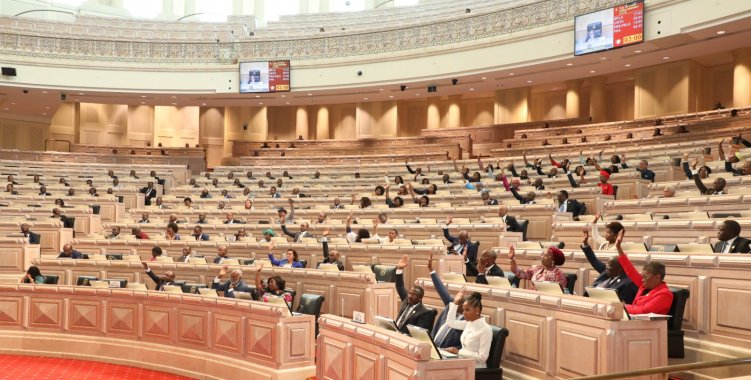The proposal, which began to be discussed on Wednesday, in a very heated debate, with close to 40 interventions, was approved with 101 votes in favor of the Popular Movement for the Liberation of Angola (MPLA) and the mixed Social Renewal Party (PRS) and National Front for the Liberation of Angola (FNLA), 79 against from the National Union for the Total Independence of Angola (UNITA) and two abstentions from the Humanist Party of Angola (PHA).
The new law foresees that Angola will have 20 provinces from next year, two more than the current ones, 325 municipalities and 375 communes.
The Minister of State and head of the President's Civil House, Adão de Almeida, said that the proposal initially envisaged the division of the provinces of Moxico, Cuando Cubango, Lunda Norte, Malanje and Uíge, but only the two largest were prioritized at this stage.
"What is proposed is to divide the province of Moxico, the largest in our country, into two, with Moxico, based in Luena, and Cassai Zambeze, based in Cazombo", while the division of Cuando Cubango, will give rise to Cubango, based in Menongue, and Cuando, based in Mavinga.
The official recalled that these two provinces, alone, are larger than the 12 smallest African countries together. And that, among the 27 countries in the European Union, 19 are less extensive than these two regions of Angola.
Regarding some current districts, communes and localities, the proposal envisages elevating a total of 161 localities to municipalities, making the country now have 325 municipalities.
This Thursday, as work resumed, the UNITA parliamentary group demanded an apology from the MPLA deputy, Osvaldo Caculo, as they considered him to have called them "monkeys", saying: "As long as UNITA continues to inherit the monkey behavior, according to which, always spoiling the green one so as to never eat the ripe one, UNITA will never be power".
Another notable moment was a point of order requested by deputy Albertina Ngolo, from UNITA, because the Minister of State and head of the President's Civil House, Adão de Almeida, considered that the "obsession" with local authorities diverted the discussion from the topic.
According to Albertina Ngolo, it was the Government that gave an indicative date, repeated in 2018 by the President, to hold the first elections in 2020.
Adão de Almeida reaffirmed the President's desire to institutionalize local power, ironizing: "The UNITA parliamentary group, very interested in the implementation of local authorities, presented two proposed laws (...), [and] the President of the Republic, uninterested, presented 11 bills".
"Therefore, whoever wants to, presented two, whoever doesn't want to, presented 11," he said, announcing that three more law proposals from the municipal legislative package are in preparation.
In his declaration of vote, the PRS deputy, from the mixed PRS/FNLA parliamentary group, Benedito Daniel, said that the dynamics of demographic, social, cultural and economic development have changed and require changes in the political-administrative organization, which he does not want say that inequalities and poverty rates are reduced.
Deputy Américo Chivukuvuku, from the UNITA parliamentary group, justified his vote against, declaring that this bill "is not a priority, it is not urgent, it is not decisive for the efficiency and effectiveness of governance and it is not important for the development of the country", ending the intervention with shouts of appeal from his colleagues for "local authorities now".
Deputy Virgílio Tyova, from the MPLA parliamentary group, said that the vote was favorable because it "realizes the MPLA Government's program", voted for mostly by Angolans in the August 2022 elections, consolidates the process of administrative deconcentration and promotes more harmonious management of territorial units.







